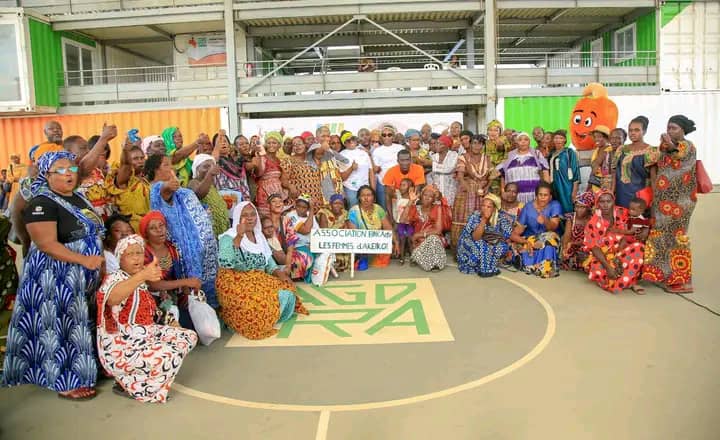This past weekend, they trained over 500 women in Abobo, a populous district in Abidjan, as part of their ongoing campaign targeting women.
The Council, focused on processing within the industry, is capitalizing on the country’s impressive processing capacity. With 30 processing plants boasting a 350,000-ton capacity, the cashew industry has created over 15,000 direct jobs, with women making up 70% of the workforce.
This year’s “Cashew Mothers’ Day” celebration, held at Abobo’s Espace Agora, exceeded expectations. Nearly 500 women participated in the four-day training, surpassing the initial target of 300.
The Council’s Managing Director, Dr. Coulibaly Adama, emphasized the importance of increasing cashew consumption within Ivorian households. He commended the Mayor of Abobo, Kandia Camara, for her support in promoting local cashew products.
Highlighting the health benefits, Dr. Jean Noel Kouame stressed cashews’ medicinal qualities. He explained their potential to combat malnutrition, high blood pressure, constipation, and even liver cirrhosis. To encourage a varied and healthy diet, he recommended incorporating cashew products like juice, paste, vinegar, milk, and oil.
As the world’s second-largest cashew exporter and third-largest processor, Côte d’Ivoire has ambitious goals. They aim to process half of their cashew production by 2027. This initiative aligns with the World Bank-funded Project to Promote the Competitiveness of the Cashew Value Chain (Ppca).
The success of the Cashew Mothers’ Day, following previous events in Yopougon and Cocody, demonstrates a clear shift. Cashew processing in Côte d’Ivoire has skyrocketed from 6.22% in 2016 to 21% in 2023, with a record 265,863 tons processed last year. This trend indicates a bright future for the Ivorian cashew industry, with both domestic consumption and processing on the rise.
AP/fss/abj.APA


